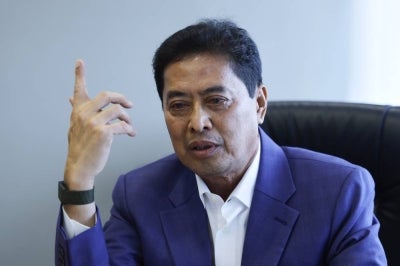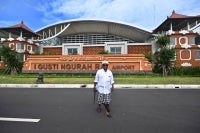Nadma receives RM6 million 'Fast' asset from US Indo-Pacific Command HQ

KUALA LUMPUR - The National Disaster Management Agency (Nadma) today received a medical asset donation worth RM6 million known as Forward Anaesthesia Surgical Trauma (Fast) from the United States (US) Indo-Pacific Command Headquarters.
It was handed over by US Embassy chargé d’affaires Manu Bhalla to Army Deputy Chief Lt Gen Datuk Tengku Muhammad Fauzi Tengku Ibrahim during a ceremony at the Tuanku Mizan Military Hospital here.
Tengku Muhammad Fauzi said Fast was used for the Malaysian Field Hospital operation during a humanitarian mission in Turkiye last February.
"The 52 items in Fast are medical equipment used for performing surgeries on patients requiring full or local anaesthesia," he said at a press conference here.
Meanwhile, Manu said Fast helps to strengthen the relationship between civilians and the military and enables both countries to cooperate in addressing humanitarian crises in Malaysia and globally.
"The US Embassy greatly values our strong relationship with Nadma and Malaysian Armed Forces Health Service that has only been further strengthened since the COVID-19 pandemic began in 2020,” he said in his speech at the ceremony.
Manu said the US and Malaysia have had a long history of collaboration on public health issues, including identifying emerging infectious diseases and threats through their work in Sabah.
"Furthermore, under USAID’s (United States Agency for International Development) global programme, the US government provided US$200 million for research in Borneo for more than a decade to detect and better understand emerging infectious diseases of zoonotic origin.
"Currently, the National Institute of Health funds the Emerging Infectious Diseases Southeast Asia Research Collaboration Hub that works to be an early warning system for outbreaks,” he added. - BERNAMA
Download Sinar Daily application.Click Here!














